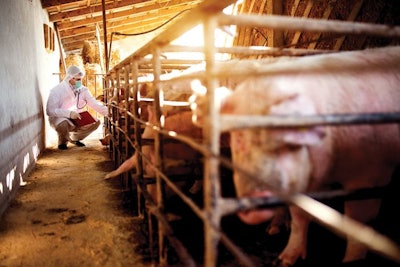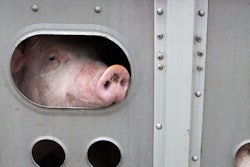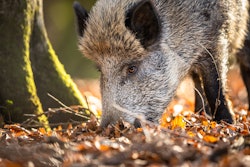
After a two-month hiatus, African swine fever (ASF) virus has been detected again in the Khabarovsk region of Russia’s Far Eastern federal district.
Presence of the virus was confirmed after two of the five pigs in a backyard herd died in the third week of March, according to the official notification to the World Organisation for Animal Health (WOAH). Source of the infection is unknown.
A previous outbreak series in this region was declared resolved in late January.
In Indonesia, further cases of ASF have been reported in the South Sulawesi region since mid-March.
The number of confirmed outbreaks nationwide has risen by 11, and total animals affected by 170 to 83 and 514, respectively, so far in 2024. This is according to the latest update of the national animal health information system, ISIKHNAS.
All the most recent outbreaks occurred in the province of South Sulawesi, while there have been no changes in the other provinces with cases since January, namely East Nusa Tenggara or West Kalimantan.
Latest developments in the ASF situation in Vietnam were reported by Hanoi Moi at the end of March.
Over the previous 21 days, it reports that 41 outbreaks were confirmed in 19 of the nation’s 63 provinces and city municipalities. These figures are included in the totals for the first quarter of 2024 — 138 outbreaks across 30 provinces/cities, involving the culling of 4,486 swine.
According to this source, the number of outbreaks is expected to continue rising above those recorded in 2023.
ASF developments elsewhere in Asia
Since the disease first occurred in South Korea in 2019, the number of ASF cases among the nation’s wild boar population has reached 3,978. This is according to Pigs & People (as of April 15). Included are an additional 111 cases since a previous edition dated March 28. Of these, a majority — 84 — of the infected animals were found in the eastern province of North Gyeongsang.
South Korea’s outbreak total in domestic pigs is unchanged since January at 40.
Since the Philippines’ first ASF cases in 2019, more than 2,300 outbreaks in domestic swine have been reported to WOAH by the animal health authority. The disease situation remains active, with ongoing outbreaks in eight of the country’s 17 regions, all of which have confirmed cases of the disease at some point over the past five years.
In mid-2023, the world’s first ASF vaccines for pigs were authorized in Vietnam.
While the authorization process is ongoing in the Philippines, it appears that some people are prepared to take a huge risk to gain advanced access to the vaccine.
Over the past two weeks, quantities of ASF vaccine have been smuggled into the country, according to Philippine Star. Officials say significant quantities of vaccine have been found in plastic glasses containing dry ice in the luggage of passengers from Vietnam and other Asian states.
View our continuing coverage of the global African swine fever situation.
Further CSF cases detected in Japan’s wild boar
Latest notification from the veterinary authority in Japan to WOAH covers cases of Classical swine fever (CSF) in the nation’s wild boar in the last three months of 2023.
Over that period, 442 animals tested positive for the CSF virus, bringing the total number of cases in the country since March 2022 to 2,448.
One or more of the latest cases to be reported were found in 31 prefectures across seven of the country’s eight regions. Recording the most of these latest cases were the prefectures of Gifu, Gunma and Mie, which are all located in central Honshu.
The most recent CSF outbreak affecting domestic pigs in Japan was confirmed in mid-February.
At the end of March, Live Mint reported significant progress in the development of India’s first CSF vaccine.
The Indian Institute of Technology Guwahati has successfully transferred the technology for a recombinant virus-based vaccine. This represents a cost-effective solution to CSF, which has been linked to frequent outbreaks in the northeastern states, as well as Punjab, Haryana, Bihar, Gujarat and Kerala, according to the source.
Like ASF, CSF (also known as hog cholera) is a notifiable disease that affects members of the pig family, according to WOAH.
Both diseases cause devastating losses in domestic and wild populations, while not affecting human health. Despite the similar names, CSF and ASF are caused by unrelated viruses.

















